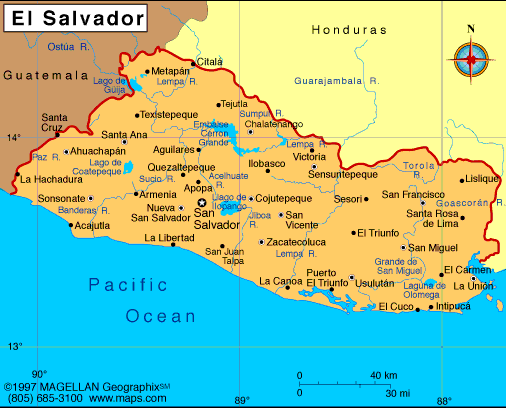
Gang activity is widespread in El Salvador. There are thousands of gang members operating in the country, including members of Mara Salvatrucha (MS-13) and Eighteenth Street (M18). Gangs (maras) focus on extortion, violent street crime, narcotics and arms trafficking. Muggings following ATM or bank withdrawals are common, as are armed robberies at scenic-view stops (miradores). While the majority of the violence occurs between rival gangs and there is no information to suggest U.S. citizens are specifically targeted, its pervasiveness increases the chance of being caught in the wrong place at the wrong time.
Due to armed robberies in national parks, we strongly recommend that hikers in back country areas engage local guides certified by the national or local tourist authority. The National Civilian Police (PNC) has a special tourist police force (POLITUR) to provide security and assistance to visitors. More information can be found on POLITUR’s website.
Remain alert to your surroundings, especially when entering or exiting homes, hotels, cars, garages, schools, and workplaces. When possible, travel in groups. U.S. Embassy personnel are advised not to walk, run, or cycle in unguarded streets and parks, even in groups. Avoid wearing expensive jewelry, and do not carry large sums of money or display cash, ATM/credit cards, or other valuables. Avoid walking at night in most areas of El Salvador. Motorists should avoid traveling at night. Drive with windows up and doors locked to deter robberies. Avoid travel on public transportation, especially buses, both within and outside the capital. Only use radio-dispatched taxis or those stationed in front of major hotels.
For further information:
- See the State Department’s travel website for the Worldwide Caution, Travel Warnings, Travel Alerts, and El Salvador’s Country Specific Information.
- Enroll in the Smart Traveler Enrollment Program (STEP) to receive security messages and make it easier for us to locate you in an emergency.
- Contact the U.S. Embassy in El Salvador, located at Final Boulevard Santa Elena Sur, Urbanización Santa Elena, Antiguo Cuscatlán, La Libertad, by email at [email protected] or by phone at 503-2501-2999, or visit our website.
- Call 1-888-407-4747 toll-free in the United States and Canada or 1-202-501-4444 from other countries from 8:00 a.m. to 8:00 p.m. Eastern Standard Time, Monday through Friday (except U.S. federal holidays).
- Follow us on Facebook or Twitter.
Source: http://state.gov








